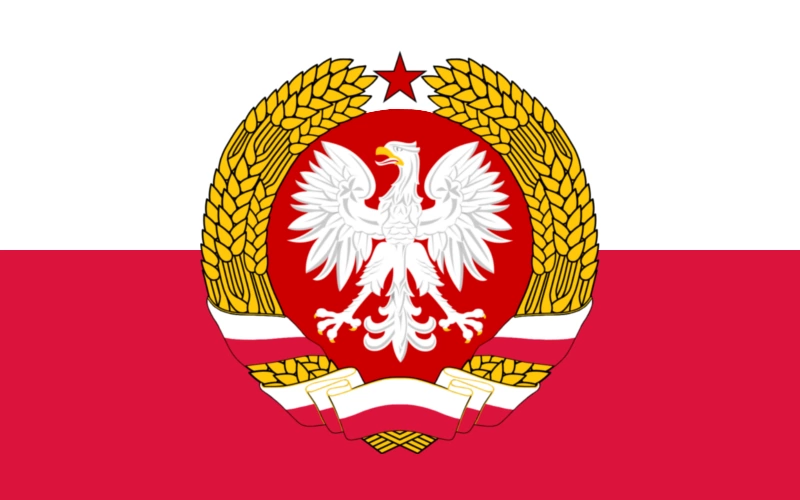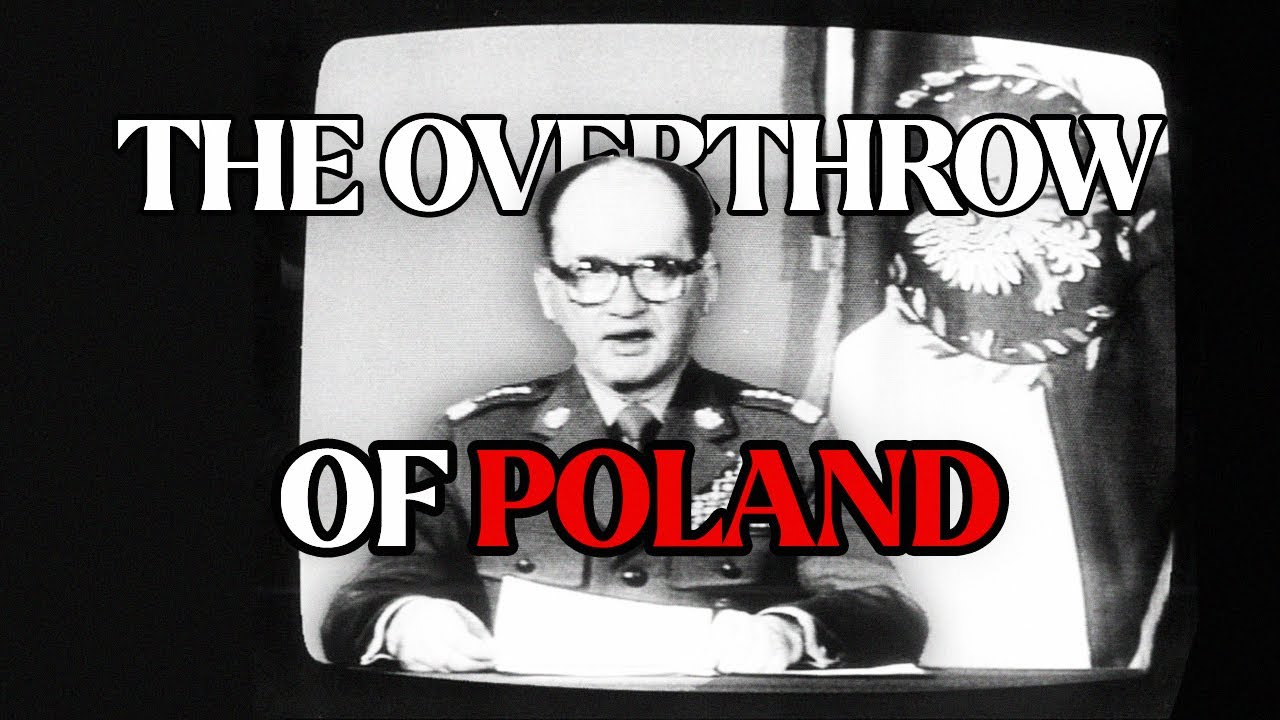POLSKA MENSZJOND NIE WIERZE
Coś takiego. Rest of post in english since it's relevant to the video. Some of my comments might be of interest:
-
1970 wasn't first major protest rounds (but first mass economic unrest, like he said). First we have 1944-48, a literal civil war. Then 1956, though those weren't mass unrest but rather a internal political conflict in which foreign agents clearly meddled in order to turn the in-party conflict (1956! revisionists won). Then 1968, also internal political crisis among the revisionists, but significant and having grave consequences in the future due to actual bureocracy kids going liberal and spilling petty burgie sentiment all along.
-
While he's correct in that 1970 protests were caused by the private property (chiefly lack of collectivisation which left the state on the mercy of mass of petty bourgeois food producers), the emphasis on heavy industry wasn't a mistake. Poland have all necessary resources and without heavy industry socialism would be crippled fast, forced to rely on imports for infrastructure and modernisation. Lenin pointed that out and it remains equally correct now, as China proven. Argument that "we should concentrate on light industry" is used by the market socialists and succdems. Also it's not like there was no light industry in Poland, it was just not able to deliver West German colourful shit to everyone.
-
Much props for him on mentioning the 1970 western zeitgeist influencing the politics. It was actually very significant factor till the end.
-
Car industry in Poland was actually successful, though it was pretty late. Mostly later kicked up by the Fiat and helped by the GDR (Fiat126p, Trabant and Wartburg were wildly successful) but we had the homegrown industry too - mentioned FSO.
-
The point about IMF is absolutely crucial, i mention this just to emphasise.
-
Food insecurity - the fault of not enough collectivisation, as Poland was probably the least collectivised socialist state and it shows, the peasantry was in constant need to be bribed by numerous privileges and generally treated like fragile egg by the government. Also here's the moment to add that there was legit reason for it, namely complete lack of any meaninful land reform for centuries in a peasant country and thus in 1944 land reform and resignation from collectivisation was the only possible course. Mistake was continuing the course even 20 and 30 years later, though the more organic forms of collectivisation were enacted and if socialism had few decades more the collective land ownership would eventually prevailed.
-
KOR - mentioned under point 1, its leaders Kuroń and Michnik were also leaders of student part of 1968 protests. You know all the sleazy liberal bastards serving at the forefront of every colour coup in the world ever? KOR was a prototype of this.
(Poland Fact: Michnik is also the apple that fell far from the tree, since his biological father Ozjasz Szechter was a prominent marxist who was editor of the Polish edition of "Capital", while Michnik became chief anticommunist propagandist and still is at the very forefront of Polish information hell bubble) -
solidarność. All correct. Note, indeed large part of it wanted improvement of condtions, not the end of socialism (good reading are the 1980 strike demands, nearly none of them are fullfilled today). Some leaders were also honest, as evidenced of them being sidelined immediately when solidarność taken power.
-
Kukliński - he was far less influental and important than said here. What was worse for Jaruzelski was the conflic between military and interior services and bureocracies. Even went to such lenghts as the agents of SB murdering popular priest Popiełuszko in order to destabilise situation even more.
-
1988 food prices riots. Incredibly ironic considering all the 80's decade seen less of living cost rise than any single year after 1989. Probably less than a single week during the shock therapy.
-
Transition. Jaruzelski was not reelected president, the post was established back then (minor nitpick). Kiszczak was the leader of the interior faction mentioned in point 9. Also entire agreement was couped shortly after the famous Round Table by one of the pro-government parties breaking it and joining the solidarność which resulted in fall of government and starting from the new elections in 1990 unlimited shock therapy. You can understand it as the multiple stage colour coup going between 1988-1990. Give reactionaries a finger and all that.
-
Intersting photo 13:50. Not only Poland was hit back then, everyone suffered as proven by the pair of Vietnamese on the front of picture. We had few dozen thousands immigrant from Vietnam coming. Most of them were back later when Vietnam situation improved, but around 20000 remained ever since.
-
Sure, there was tons of mistakes made, but he's way too harsh saying that socialist Poland was "a list of things that shouldn't be done". It was pretty successful experiment, which succeeded at unprecendented in history of Poland gains for working class and modernisation of society, which many benefits can be felt even today after 35 years of capitalism.
Mostly agree with everything else, surprisingly good video, Hakim back in form, hopefully will stay.
-
I found a YouTube link in your post. Here are links to the same video on alternative frontends that protect your privacy:




